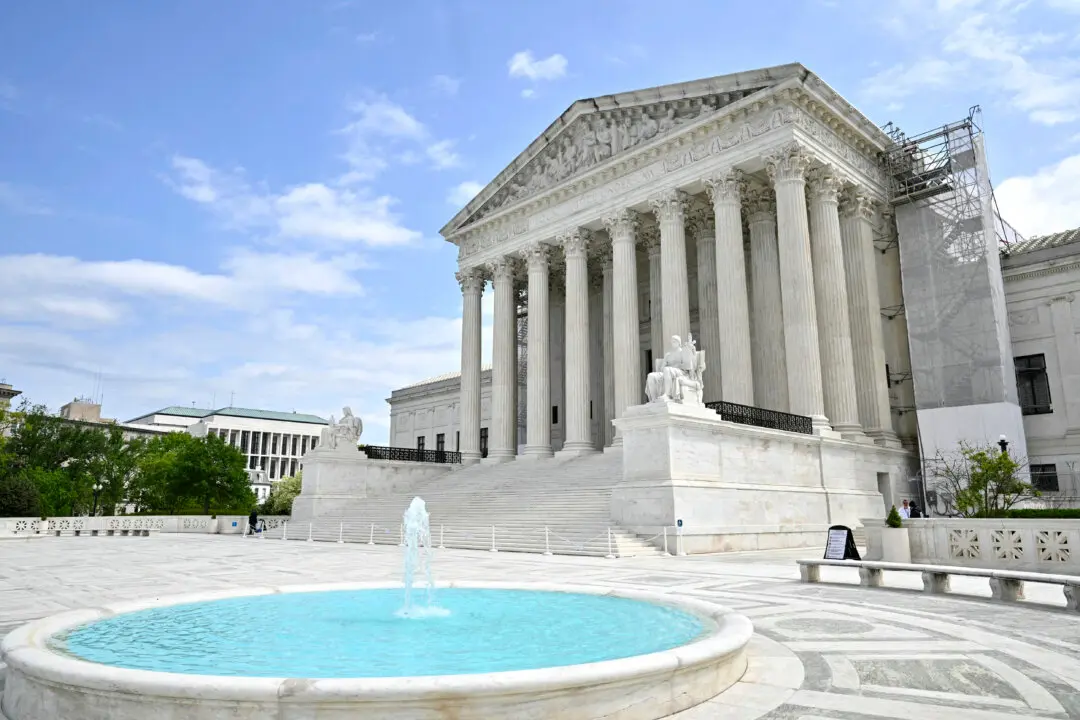The Supreme Court agreed on April 29 to take up the case of a truck driver who lost his job after testing positive for tetrahydrocannabinol (THC), the psychoactive chemical compound in marijuana that produces a high, after consuming a hemp-based product that was advertised as THC-free.
The case comes as more states are legalizing marijuana and marijuana-derived products and the popularity of products made from marijuana, also known as cannabis, is rising. Cannabidiol (CBD) products, often in the form of candy gummies, are also becoming more popular. Such products contain hemp, a relative of marijuana, but not THC, and are not impairing.
Hemp-based CBD oil is a popular wellness product sold at national chain stores such as CVS, Wegmans, Kroger, Walgreens, and Rite Aid, according to the petition filed by the company that makes the product the trucker said he used.
“CBD features in everything from oil-based supplements to fizzy drinks to CBD-enhanced sports bras. Consumers use CBD ‘for a wide variety of health issues,’ including epilepsy, insomnia, and anxiety as well as joint and muscle pain and inflammation,” the petition states.
The CBD industry was worth an estimated $6.4 billion annually in 2022 and it is expected to grow by double-digit percentages in years to come.
Douglas J. Horn was fired from his job as a commercial truck driver after a drug test indicated he had THC in his body. Mr. Horn said he unknowingly consumed THC when he used a cannabis-derived product that Medical Marijuana Inc. that was marketed as THC-free, and that he had never used marijuana or any THC-based products. The elixir he consumed is called “Dixie X” and is supposed to alleviate pain.
Mr. Horn filed a lawsuit in U.S. District Court in New York in 2015, against the manufacturer, Medical Marijuana, claiming injury under the Racketeer Influence and Corrupt Organizations (RICO) Act. He also alleged that other companies in the elixir’s supply chain violated the Controlled Substances Act and committed mail and wire fraud.
The RICO Act, enacted in 1970, targets organized criminal activity and racketeering, according to Cornell Law School’s Legal Information Institute (LII). RICO adds to existing criminal penalties and creates new civil causes of action for things done as part of an organized criminal enterprise.
“While the original statute was primarily targeted at the mafia [whose] disconnected structure made conviction of high-ranking members difficult due to the inability to tie them directly to crimes, the use of the statute has now been used to take down many notable criminal enterprises.”
RICO imposes up to 20 years in prison for criminal violations of the law. Defendants can also be forced to forfeit to the government proceeds they obtained while participating in racketeering activity. “This means that at least 2 separate activities that can be classified as racketeering must have occurred within 10 years of each other,” according to LII.
RICO’s civil provisions allow a private individual who claims to have been injured by a party to recover triple damages.
Many states have enacted their own state-level version of the RICO statute. President Donald Trump is being prosecuted under a racketeering law for alleged election subversion in Fulton County, Georgia.
The federal district court determined that Mr. Horn lacked RICO standing because he litigated over economic injuries from loss of earnings related to being exposed to THC.
The U.S. Court of Appeals for the Second Circuit overruled the district court, finding that even though RICO only allows lawsuits by a plaintiff “injured in his business or property” by racketeering activity, an economic injury resulting from personal injury was enough to bring the case within the confines of the statute.
“Because the term ‘business’ encompasses ‘employment,’ Horn has suffered an injury ‘in his business,’ as contemplated by the RICO statute,” according to a three-judge panel of the circuit court. Being fired cost the driver “current and future wages and his insurance and pension benefits—all of which were tied to his employment.”
Medical Marijuana told the Supreme Court in its petition that the RICO statute was not intended to be used this way and that letting the lawsuit proceed would open the floodgates to a wave of new RICO lawsuits.
The federal courts of appeals “are divided on whether economic damages arising from personal injuries—like lost wages or medical expenses—support civil RICO liability,” the petition stated.
“Only this Court can resolve that split, and this case is the ideal vehicle for doing so.”
The Supreme Court agreed on April 29 to consider whether Mr. Horn may proceed with his RICO lawsuit.
The case is expected to be heard in the fall.







